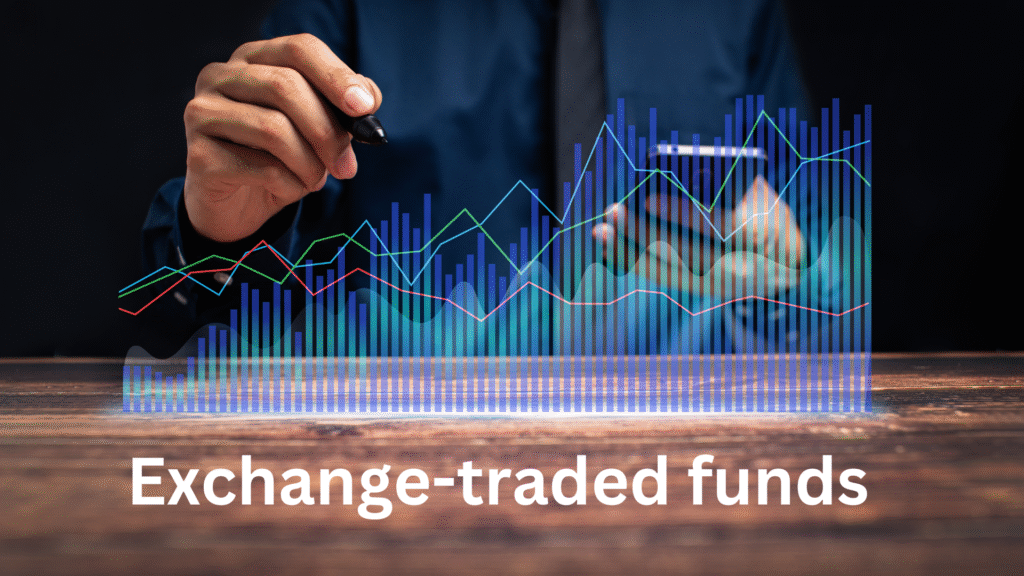Exchange-traded funds, more commonly known as ETFs, have become one of the most prevalent investment choices over the years. They combine the broadening of common stocks with the adaptability of stocks, making them appealing for both tenderfoots and prepared speculators. In any case, since ETFs are straightforward to exchange, does not cruel they are free from dangers. If you are a fair beginning your ETF travel, learning what not to do can be as profitable as learning what to do.
Let’s break down the most common mistakes fledglings make when contributing to ETFs and how you can avoid them.
Not Understanding What ETFs Truly Are

Many fledglings hop into ETFs, considering they are fair like stocks. If you purchase without knowing what the finance contains, you might conclusion up holding resources that do not coordinate with your budgetary goals.
Investing Without a Clear Goal
One of the greatest botches is buying ETFs without knowing why. Do you need long-term development, pay, or short-term exchange openings? If you have no methodology, your portfolio may seem scattered and fail to provide important returns.
Ignoring Cost Ratios
While ETFs are, by and large, low-cost compared to common stocks, they still charge administration expenses called cost proportions. Apprentices frequently disregard this small rate, but over time, tall cost proportions can eat into your profits.
Chasing the Most Smoking ETFs
Just because an ETF is trending or has conveyed tall returns as of late does not cruel it is the best choice. Numerous tenderfoots chase execution and purchase ETFs after they have as of now crested, leading to disillusionment when returns moderate down.
Over-Diversification
Diversification is great, but too much of it can hurt your portfolio. Fledglings in some cases purchase a few ETFs, not realizing they hold numerous of the same basic stocks. This duplication decreases the benefits of diversification.
Neglecting Liquidity
Not all ETFs are effectively exchanged. A few have market exchange volumes, which can make it harder to purchase or offer at the cost you need. Apprentices regularly neglect liquidity, which can lead to higher trading costs.
Forgetting Around Charge Implications
Many fledglings accept that ETFs are continuously tax-friendly, but that is not always true. Offering ETFs can trigger capital pick-up charges, and certain ETFs, like bond or universal stores, may have more complex assessment rules.
Timing the Advertising as well Much
ETFs are implied to be long-term speculations for most individuals. Fledglings who attempt to exchange ETFs day by day like stocks frequently end up losing money since short-term market developments are unpredictable.
Not Investigating the List Behind the ETF
Every ETF tracks a record or a group of assets. If you do not think about what list it takes after, you may contribute to divisions you are not comfortable with. For illustration, a “tech ETF” might be intensely weighted toward a few expansive companies.
Ignoring Cash Risks
When contributing to universal ETFs, fledglings regularly disregard almost all money fluctuations. Indeed, if the ETF performs well, changes in money esteem can influence returns.
Focusing, as it were, on Moo Prices
Some apprentices select ETFs essentially since their share cost is moo. Cost does not rise to esteem. A cheap ETF might not perform well or seem to have higher costs in the long run.
Not Rebalancing the Portfolio
Once tenderfoots purchase ETFs, they regularly disregard them. Over time, a few stores may develop quickly than others, making your portfolio uneven. Without rebalancing, you may take on more risk than you planned.
Skipping Profit Reinvestment
Many ETFs pay dividends, but fledglings regularly let them sit still instead of reinvesting. Reinvesting profits can quicken development through compounding.
Not Considering Division Exposure
If you claim different ETFs, you may unwittingly have an overwhelming introduction to one division, like innovation or healthcare. As well much concentration in a single division can increase the chance that that division underperforms.
Relying, as it were, on ETFs for Riches Building
ETFs are capable, but they ought not to be your as it were venture. Depending totally on ETFs without considering other resources like genuine assets, person stocks, or bonds can constrain your generally wealth development strategy.
Conclusion
ETFs can be an amazing way to construct wealth, but as it were, if you utilize them shrewdly. Fledglings regularly make botches by surging in without inquiry about, following patterns indiscriminately, or disregarding vital details like expenses and charges. By understanding what ETFs truly are and adjusting them with your money-related objectives, you can dodge these common pitfalls and make more astute speculation decisions.
FAQs
Are ETFs great for beginners?
Yes, ETFs are beginner-friendly since they offer expansion and are simple to exchange, but you still need to get what you are buying.
How many ETFs ought to I begin with?
Starting with one or two broad-market ETFs is, as a rule, sufficient. Dodge buys numerous at once to avoid overlap.
Do ETFs ensure profits?
No, ETFs do not ensure benefits. They still depend on advertising execution and can lose value.
Ought I contribute to ETFs monthly?
Yes, utilizing a methodology like dollar-cost averaging can help mitigate risks and build wealth over time.
Are ETFs more secure than stocks?
Generally, yes, since ETFs spread risk over numerous resources. In any case, they are not risk-free and can still decrease in esteem.



